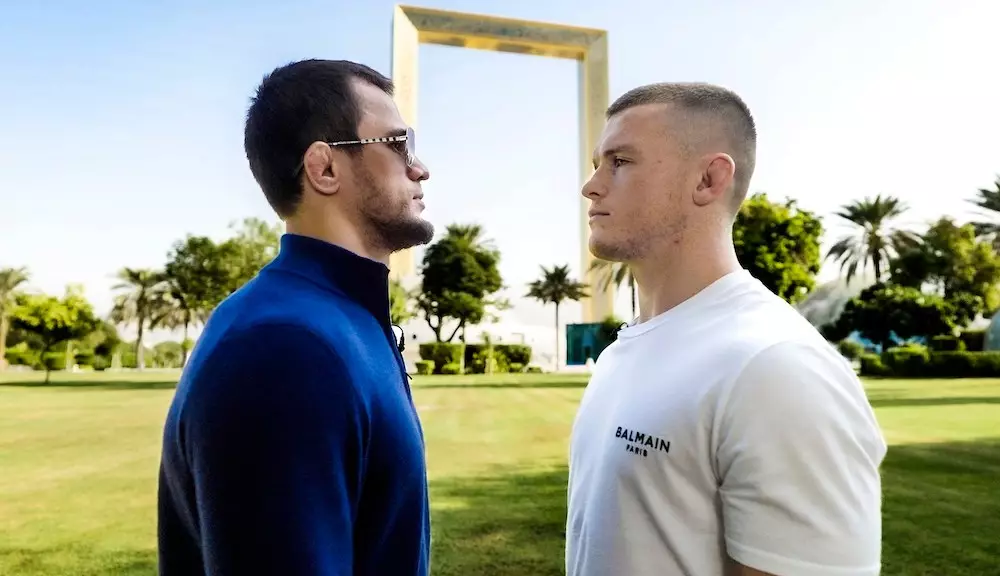In the world of mixed martial arts (MMA), rivalries often transcend the octagon, delving into national pride and regional representation. One of the most prominent rivalries in the sport emerged between Khabib Nurmagomedov, hailing from Dagestan, and Ireland’s iconic fighter, Conor McGregor. This tension is further magnified when Khabib discusses the quality of fighters emerging from these regions, particularly in light of his cousin Usman Nurmagomedov’s upcoming title defense against Paul Hughes at the Bellator Champions Series: Road to Dubai.
Khabib, a UFC Hall of Famer and now a reputable coach, expresses a clear stance on the capabilities of Irish fighters. He argues that the talent pool from Ireland is nowhere near that of Dagestan, a region renowned for producing world-class athletes. This sentiment arises not out of mere nationalistic fervor but from a deeply rooted conviction based on his experiences within the sport.
Nurmagomedov’s confident declarations stem from his extensive experience and the considerable achievements of fighters from Dagestan. Following his retirement from competition in 2020, he shifted his focus toward coaching, guiding his cousins and childhood friends in their respective careers. His assertion that Dagestan boasts a superior caliber of fighters reflects not just pride but a recognition of the rigorous training and relentless discipline that characterize the region’s martial artists.
Khabib posits that the infrastructure and cultural emphasis on martial arts in Dagestan facilitate a unique breeding ground for champions. “How many fighters from Ireland?” he questions, pointing out that only a few individuals, most notably Conor McGregor and Paul Hughes, represent the country on a significant stage. He implies that the depth and breadth of talent residing in Dagestan far exceed that of Ireland, highlighting the challenges that international organizations face in signing Dagestani fighters.
Yet, Khabib’s perspective may warrant a more nuanced examination. Irish fighters have demonstrated resilience and skill that cannot be easily dismissed. While Khabib focuses on quantity, the Irish MMA scene has emerged as a vibrant community known for fostering exceptional talent despite its smaller scale. Fighters like Ian Machado Garry, despite Khabib’s remarks, exemplify a new generation of athletes capable of competing at the highest levels.
This competitive spirit suggests that while Ireland may not match Dagestan in sheer numbers, it has produced fighters capable of captivating audiences and challenging elites in the sport. The evolution of MMA today allows for narratives and rivalries to evolve, creating platforms for varied fighters to showcase their skills on global stages.
Ultimately, Khabib Nurmagomedov’s critiques of Irish fighters signify much more than a simple comparison; they reflect the pride of a region that has cultivated a legacy of excellence in MMA. Yet, rather than creating an environment of rivalry, it is essential to foster mutual respect and awareness of how varied backgrounds contribute to the rich tapestry of the sport. As MMA continues to evolve, the narratives surrounding these fighters—whether Irish or Dagestani—add to the depth and excitement of the arena. Khabib’s passionate defense of Dagestani fighters is an invitation: to recognize the prowess of his compatriots while acknowledging the journey and potential of international talents across the globe.

